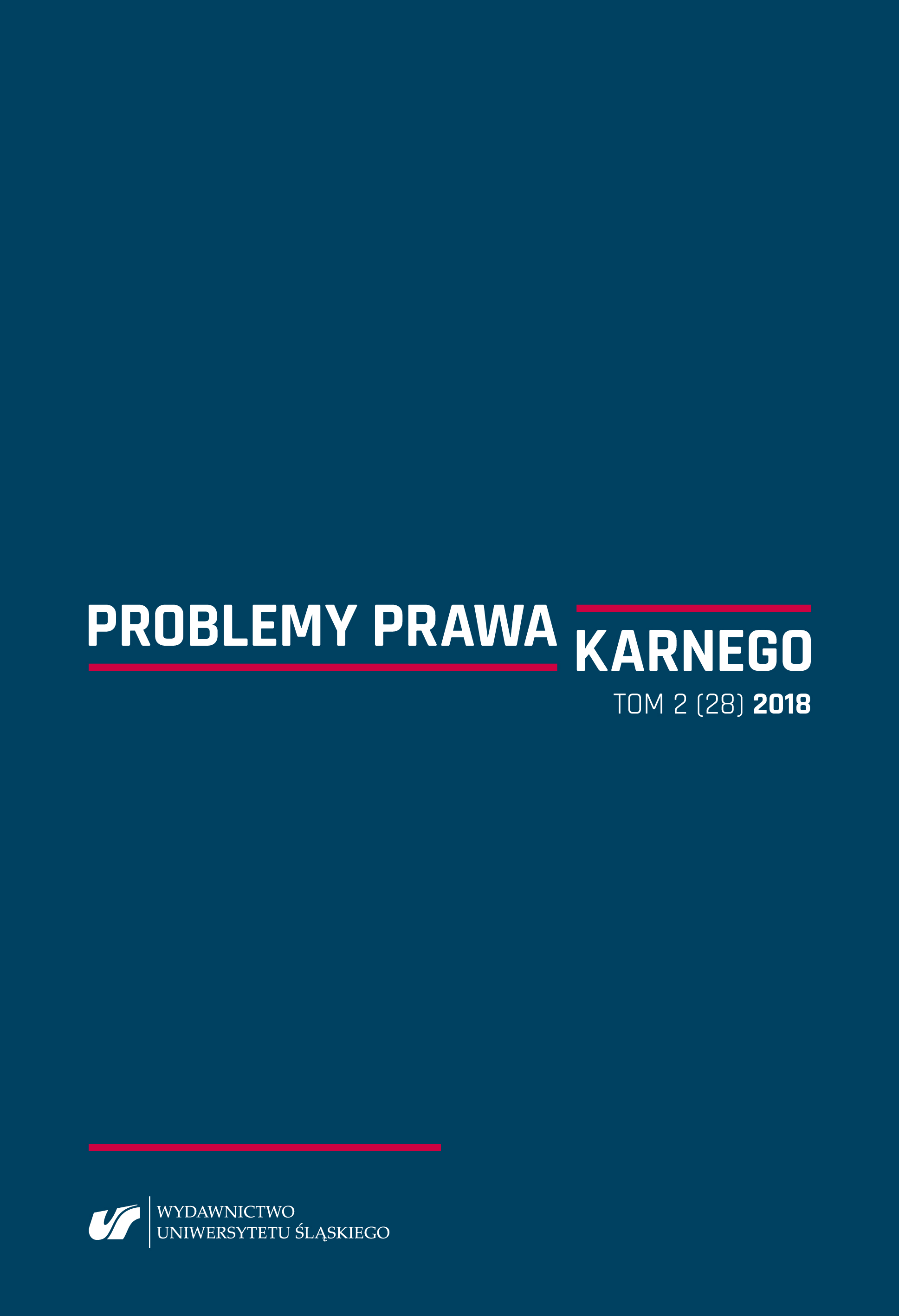„Owoce zatrutego drzewa” z perspektywy oskarżyciela publicznego w aspekcie konstytucyjnych podstaw procesu karnego
The “fruit of the poisonous tree” from the perspective of a public prosecutor in terms of the constitutional foundations of a criminal lawsuit
Author(s): Mariusz KrasońSubject(s): Law, Constitution, Jurisprudence, Criminal Law
Published by: Wydawnictwo Uniwersytetu Śląskiego
Keywords: Fruit of the poisonous tree; illegally obtained evidence; evidence obtained by means of crime; operation-related activities
Summary/Abstract: The problems of the so-called poisonous tree in the course of the preliminary legal proceedings appear and continue to appear basically in every individual instance of the evaluation of the body of evidence submitted to the public prosecutor’s department. The task of the public prosecutor’s department has to do inter alia with the keeping of law and order and the supervision of the prosecution of crime. This task is realised by the supervision of the consistency of the preliminary legal proceedings with the law, and the initialisation and the performance of operational-examination activities by law enforcement organs in the scope of activities which is stipulated in the acts of law which regulate the organisation and the object of activities of these organs. The supervision which was indicated should be realised in an in-depth, comprehensive and substantive manner. Within the framework of the evaluation of the activities engaged by other organs, including those that are authorised to execute and conduct operation-related activities, the public prosecutor is obliged to evaluate the correctness of the process of the accumulation of evidence and the making of decisions in terms of the scope and the means of utilising the said evidence. Such control may and should be conducted with reference to the constitutional principles, described particularly in Art. 2 – the principle of a democratic state of law, Art. 7 – the principle of legalism, Art. 45 Par. 1 – the principle of the right to a trial and the resulting principle of the right to due process. The regulations of the Constitution of the Republic of Poland have not been modified since 1997, therefore with the changed state of the regulations of the Code of Criminal Law (the addition of new regulations in Art. 168 a and b ) or the competence-related acts of law, it is still possible to interpret these regulation in terms of the constitutional norms which were indicated. The new content which was introduced to the code of criminal procedure is a source of serious constitution-related doubts, and the evaluation of the material which was submit ted to be treated during criminal proceedings may lead to statements that the very fact of having acquired a piece of evidence with the violation of regulations or by means of a criminal offense and the simultaneous violation of the regulations of the Constitutions is sufficient to preclude the utilisation of a given piece of evidence in these legal proceedings and to preclude the establishment of the actual state of affairs on the basis of such a piece of evidence. It is impossible to accept a situation in which the functionaries of the state, i.e. of public authorities, can collect evidence-related material in violation of the law which is binding and it is in keeping with the law that, on the basis of this material, citizens may bear criminal responsibility.
Journal: Problemy Prawa Karnego
- Issue Year: 28/2018
- Issue No: 2
- Page Range: 61-74
- Page Count: 14
- Language: Polish

